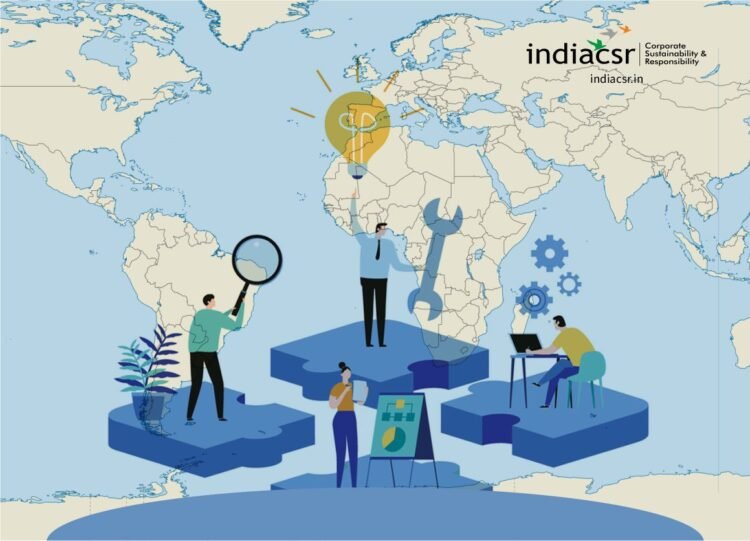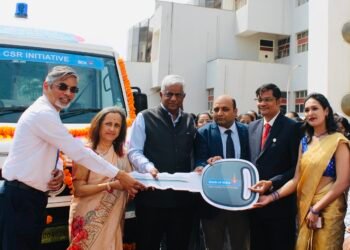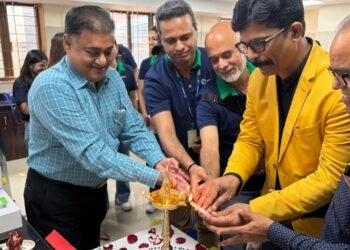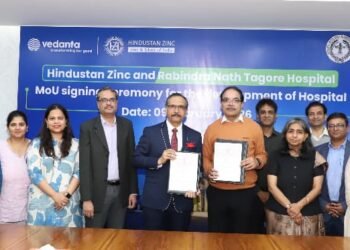Strategic alignment between CSR, welfare initiatives and industry needs will ensure India’s workforce becomes globally competitive, resilient and future-ready.
MUMBAI (India CSR): Corporate social responsibility (CSR) spending on skilling needs to improve substantially for unlocking India’s workforce potential on the global stage, Crisil said in a report titled ‘India’s got talent’, released today.
India has an unprecedented opportunity as developed economies across the Gulf Cooperation Council, Europe and Australia face acute skill shortage, especially in critical sectors such as healthcare, information and communication technology, renewable energy, logistics, and construction. With 65% of its population below the age of 35 and, thereby, abundant workforce supply, it can easily bridge gaps in the global labour market.
However, to realise the demographic advantage, India needs huge investments in skilling — a burden public and private sectors must lift together.
So far, while skilling has got some attention under CSR, complementing government initiatives such as the Pradhan Mantri Kaushal Vikas Yojana, there is ample headroom for improvement. Of the Rs 2.22 lakh crore spent by corporates on CSR since fiscal 2015, only 3.5% has been channelled towards skilling. Besides, CSR initiatives have been fragmented and focused on conventional or informal trades, disconnected from the global employment ecosystem. This underscores the need for a sharper, more strategic approach.
Says Binaifer Jehani, Business Head, Risk Solutions – Assessments & Social Sector Consulting, Crisil Intelligence, “CSR investments must evolve beyond isolated skilling activities. When strategically integrated with government initiatives, CSR has immense potential to act as an enabler, significantly strengthening India’s global workforce readiness. Our analysis highlights that, to effectively harness its potential, CSR must strategically identify and prioritise skills in a phased manner.”
In the short term (1-2 years), CSR funds should focus on easily scalable skilling initiatives in caregiving, construction trades, logistics, and truck driving. These sectors already possess domestic training capabilities but require international standardisation, migration-readiness training, and focused language and cultural orientation.

In the medium term (2-5 years), CSR should deepen collaboration and focus investments on sectors with high global demand, including ICT, cybersecurity, renewable energy, artificial intelligence, hospitality and tourism.
For long-term sustainability (5-10 years), CSR must proactively collaborate with the government and industry partners to establish future-oriented skill ecosystems. This includes transforming curriculums, investing in advanced sectors such as robotics, blockchain, precision manufacturing, and healthcare, and supporting strong public-private partnerships.
The report strongly advocates CSR support for robust training infrastructure, particularly smart labs and simulator-based facilities, which replicate real-world scenarios. Equally important are language and cultural labs, essential for ensuring candidates are internationally employable and can adapt to diverse work cultures. Collaborations between sectors can also create strong systems for skilling, such as a consortium of automotive companies jointly funding global-standard electric vehicle technician training.
Says Monika Pattnaik, Associate Director, Risk Solutions – Social Sector Consulting, Crisil Intelligence, “Sectoral coalitions led by CSR investments can significantly amplify skilling outcomes. Collaborative industry efforts, such as automotive companies coming together to support international standard technician training for electric vehicles, demonstrate the power of focused and aligned CSR contributions and can bridge skill gaps at scale.”
India’s demographic advantage is time sensitive. Strategic alignment between CSR, government initiatives and industry needs will ensure India’s workforce becomes globally competitive, resilient and future ready. Real-time demand mapping and comprehensive data dashboards are critical to monitor and forecast global and domestic skill shortages, enhancing the effectiveness of skilling initiatives. CSR must closely work with government bodies to integrate these platforms into existing national frameworks, ensuring skilling interventions remain timely, demand-driven, and outcome-oriented.
| 1 | Report Title | India’s got talent |
| 2 | Publisher | Crisil Intelligence |
| 3 | Report Release Date | 14 July 2025 |
| 4 | Total CSR Spend Since FY2015 | ₹2.22 lakh crore |
| 5 | Share of CSR Spend on Skilling | 3.5% |
| 6 | Demographic Advantage | 65% of India’s population is below the age of 35 |
| 7 | Global Labour Demand Sectors | Healthcare, ICT, Renewable Energy, Logistics, Construction |
| 8 | Short-Term CSR Focus (1-2 years) | Caregiving, construction, logistics, truck driving – with migration-readiness training |
| 9 | Medium-Term CSR Focus (2-5 years) | ICT, cybersecurity, AI, renewable energy, hospitality, tourism |
| 10 | Long-Term CSR Strategy (5-10 years) | Robotics, blockchain, healthcare, precision manufacturing – aligned with global trends |
| 11 | Critical Infrastructure Support Needed | Smart labs, simulators, language & cultural labs |
| 12 | Call for Collaborative Industry Initiatives | E.g., EV technician skilling by automotive sector consortium |
| 13 | Key Recommendations | Strategic alignment with govt. initiatives; data dashboards; public-private partnerships |
(India CSR)





















